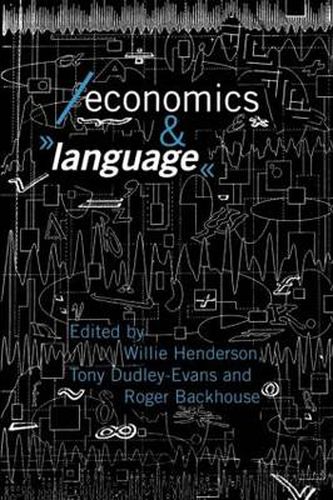Readings Newsletter
Become a Readings Member to make your shopping experience even easier.
Sign in or sign up for free!
You’re not far away from qualifying for FREE standard shipping within Australia
You’ve qualified for FREE standard shipping within Australia
The cart is loading…






Twentieth century philosophy has been dominated by issues concerned with language. These have left few areas of academic enquiry untouched; an awareness of language matters to a discipline because claims to knowledge can be made only by using language. However, economists have only come to recognize the importance of language relatively recently. Moreover whilst there has been much written on the subject of economics and language in the last decade this has been dominated by the use of techniques borrowed from literary criticism. Whilst these have provided many valuable insights, they have tended to conceal the features of economics writing which distinguish it from writing in other disciplines. Economics and Language takes a broader perspective. Its approach is determinedly interdisciplinary, and it includes contributions from economists, applied linguists and literary theorists. It moves from chapters looking at the wider methodological implications of language issues within economics to an analysis of how economic texts work. This ensures that methodological discussion is related directly to the practices of economics.
$9.00 standard shipping within Australia
FREE standard shipping within Australia for orders over $100.00
Express & International shipping calculated at checkout
Twentieth century philosophy has been dominated by issues concerned with language. These have left few areas of academic enquiry untouched; an awareness of language matters to a discipline because claims to knowledge can be made only by using language. However, economists have only come to recognize the importance of language relatively recently. Moreover whilst there has been much written on the subject of economics and language in the last decade this has been dominated by the use of techniques borrowed from literary criticism. Whilst these have provided many valuable insights, they have tended to conceal the features of economics writing which distinguish it from writing in other disciplines. Economics and Language takes a broader perspective. Its approach is determinedly interdisciplinary, and it includes contributions from economists, applied linguists and literary theorists. It moves from chapters looking at the wider methodological implications of language issues within economics to an analysis of how economic texts work. This ensures that methodological discussion is related directly to the practices of economics.